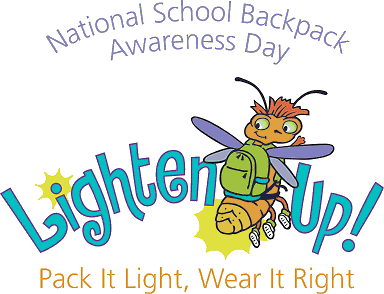What is National School Backpack Awareness Day you ask? Who is involved? The American Occupational Therapy Association’s National School Backpack Awareness Day is when multiple resources (Occupational Therapists, Physical Therapists, Teachers, etc.) across the county help others to “Live Life To Its Fullest” by avoiding the pain or injury that comes with carrying heavy backpack or bags of any kind. Students are taught multiple safety tips and different ways they can be protected from getting an injury, and to protect their back. With around 55% of students carrying backpacks that are much heavier than what they’re supposed to, this results in injuries. Backpack-related injuries send approximately 5,000 students a year to emergency rooms, which can progress throughout school year into adulthood.
“A child wearing a backpack incorrectly or that is too heavy can be contributing risk factors for discomfort, fatigue, muscle soreness, and musculoskeletal pain especially in the lower back,” says Karen Jacobs, EdD, OTR/L, CPE, clinical professor of occupational therapy at Boston University, and an expert on school ergonomics and healthy growth and development of school-age children. Statistics show that at least 90% of children use a backpack every day and most of the backpacks carried are over the recommended weight.
Things that can be done to help children with their backpacks are:
- Place heavier books toward the child’s back
- Straps should be tight and supported by the child’s body, not hanging low on the body
- Backpack weight should be equal to no more than 10-15% of the child’s body weight ex: 8-pound backpack for an 80-pound child
- Avoid buying adult sized backpacks for younger children as it allows too much space for overpacking
For additional tips and information on celebrating National School Backpack Awareness Day, visit www.AOTA.org/backpack.
Author: Elizabeth Vosseler, School Psychologist, M.A. PPS, Mental Health Certificate

